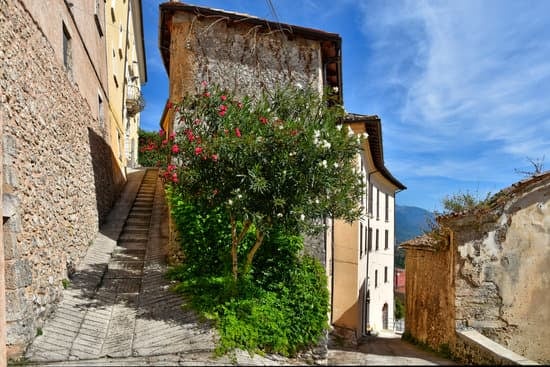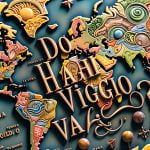When embarking on a journey to a foreign country, one of the most critical aspects to consider is safety. Whether it’s understanding the local customs, navigating emergency situations, or simply knowing how to ask for help, being prepared can make all the difference in ensuring a safe and memorable experience.
In this article, we will delve into the significance of safety in travel and language learning, with a specific focus on Italy. We will explore common phrases to know for a safe journey, tips for navigating emergency situations, dos and don’ts of Italian culture, as well as useful resources and tools to enhance safety during travel.
Traveling is not just about exploring new destinations; it’s also about immersing oneself in different cultures and experiencing the beauty of diversity. However, along with cultural immersion comes the responsibility of ensuring your own safety.
Understanding the cultural significance of safety in Italy is crucial for travelers who want to make the most out of their trip while minimizing any potential risks. By familiarizing ourselves with Italian customs regarding safety and being mindful of our surroundings, we can greatly enhance our overall travel experience.
One of the first steps in preparing for a safe journey to Italy is familiarizing yourself with common Italian safety phrases. In this section, we will provide you with essential expressions that can come in handy when seeking assistance or ensuring your well-being abroad. From simple phrases like “Help me.” to more advanced phrases such as “I need a doctor,” having these language skills at your disposal can make a significant difference when faced with an emergency situation.
In this article, we aim to equip you with not only essential Italian phrases but also important safety tips specifically tailored for travelers in Italy. We will discuss everything from safeguarding personal belongings to taking public transportation safely within the country. Additionally, we will outline cultural dos and don’ts that will help you respect Italian traditions while staying safe throughout your journey.
By understanding the importance of safety in travel and language learning, arming ourselves with common Italian safety phrases, and following essential safety tips, we can embrace our travels to Italy with confidence. With the right preparation and knowledge, we can create unforgettable memories while keeping ourselves secure in this beautiful Mediterranean country.
Understanding the Cultural Significance of Travel and Safety in Italy
Italy is a country known for its rich cultural heritage, stunning landscapes, and delicious cuisine. From exploring ancient ruins in Rome to enjoying the breathtaking coastlines of the Amalfi Coast, there are countless reasons why people choose Italy as their travel destination. However, it is important to understand the cultural significance of travel and safety in Italy before embarking on your journey.
In Italy, safety is highly valued and considered an essential part of daily life. Italians place great emphasis on personal well-being and take necessary precautions to ensure a safe environment for both locals and tourists alike. This cultural mindset is reflected in various aspects of Italian society, including transportation systems, emergency services, and public spaces.
When it comes to traveling in Italy, understanding the cultural norms related to safety can greatly enhance your experience. For instance, be mindful of pickpocketing hotspots in crowded areas such as train stations or major tourist attractions. Keep your personal belongings secure and avoid displaying valuable items openly. It is also advisable to use reputable transportation services when moving around the city or between regions.
Additionally, it is important to respect local regulations and follow any safety instructions provided by authorities or signage. For example, when visiting historical sites or museums, adhere to the specified rules regarding photography or touching artifacts. By respecting these guidelines, you not only ensure your own safety but also preserve Italy’s cultural heritage for future generations.
| Aspect | Cultural Significance |
|---|---|
| Personal Safety | Valued highly; Italians prioritize personal well-being |
| Transportation Systems | Efficient and reliable; prioritize passenger safety |
| Emergency Services | Prompt and professional; provide necessary assistance |
| Public Spaces | Safe and well-maintained; encourage a secure environment for all |
Italian Safety Phrases 101
When traveling to a foreign country, it is crucial to have some knowledge of the local language in order to ensure a safe and enjoyable journey. Italy, with its rich history and culture, attracts millions of tourists each year, making it important to be prepared with basic Italian safety phrases. In this section, we will explore some common expressions that will help you navigate various situations during your travels.
Asking for Help
One of the most important skills when it comes to ensuring your safety while traveling is being able to ask for help when needed. In Italy, knowing how to ask for assistance can make all the difference in tense situations. Some useful phrases include:
– “Mi può aiutare?” (Can you help me?)
– “Ho bisogno di aiuto” (I need help)
– “Qualcuno mi sta seguendo” (Someone is following me)
These phrases can be used to seek assistance from locals or authorities if you find yourself in an emergency or uncomfortable situation. Remember, practicing these expressions beforehand will make them easier to use confidently when needed.
Dealing with Emergencies
In any travel destination, emergencies can happen unexpectedly. It’s important to know how to communicate your situation and seek appropriate help. Here are some essential Italian phrases for emergency situations:
– “C’è stato un incidente” (There has been an accident)
– “Chiamate un’ambulanza” (Call an ambulance)
– “Ho perso il mio passaporto” (I lost my passport)
Knowing these phrases and being able to convey your situation clearly could be life-saving in times of need. Keep in mind that Italy has emergency services like police (“polizia”), fire brigade (“vigili del fuoco”), and medical aid (“soccorso sanitario”) who are there to help you.
Expressing Concerns
Safety also comes from having the ability to express your concerns and address potential problems. Here are some useful phrases for when you need to voice your apprehensions:
– “Non mi sento sicuro/a” (I don’t feel safe).
– “C’è un problema qui” (There is a problem here)
– “Mi sembra strano” (It seems strange to me)
These phrases can be used when something doesn’t seem right or when you encounter suspicious situations. It’s important to trust your instincts and speak up if you feel uncomfortable or unsafe.
By familiarizing yourself with these common Italian safety phrases, you will be better equipped to handle various situations while traveling in Italy. Remember, confidence in using these expressions can go a long way in ensuring your safety and making your journey more enjoyable.
Breaking Down the Phrase
When traveling to a foreign country, it is essential to learn basic phrases that can help ensure your safety and well-being. In Italy, knowing how to communicate about safety is crucial for any traveler. One common phrase that travelers often want to know is “How do you say travel safely in Italian?” This section will break down the phrase and provide some useful tips on how to express this sentiment in Italian.
Understanding the Phrase
To break down the phrase “How do you say travel safely in Italian?” we need to look at its components. Firstly, ‘how’ is translated as ‘come’ in Italian. ‘Do you say’ can be translated as ‘si dice’ which literally means ‘it is said.’ Finally, ‘travel safely’ can be translated as ‘viaggia sicuro’ or ‘viaggiare in sicurezza.’ Therefore, the full translation of the phrase would be “Come si dice viaggiare sicuro in italiano?”.
Variants of the Phrase
It’s worth mentioning that there are different variants of how this phrase may be expressed depending on the context. For example, if you are addressing a friend or a family member, you can use a more casual form such as “Come si dice viaggiare sicuro in italiano?”
On the other hand, if you are addressing someone who is older or more formal, it is more appropriate to use a more formal form such as “Come si dice viaggiare sicuro in italiano? “.
Using Non-Verbal Communication
In addition to learning specific phrases, it’s important also to understand non-verbal cues when communicating about safety. Italians tend to gesticulate while talking, so paying attention to body language can provide valuable information during communication. Furthermore, Italians value personal space and touching strangers without a clear reason may be perceived negatively. It’s essential to be aware of these cultural norms to avoid misunderstandings and ensure smoother communication during your travels in Italy.
Overall, understanding how to express the phrase “How do you say travel safely in Italian?” can greatly enhance your safety and confidence while traveling in Italy. By learning this basic phrase and familiarizing yourself with some cultural norms, you can communicate effectively with locals and navigate any potential safety concerns that may arise during your trip.
Navigating Emergency Situations
When traveling to a foreign country, it is essential to be prepared for any emergency situations that may arise. Being able to communicate your needs and seek help in the local language can make a significant difference in ensuring your safety. This is especially true when visiting Italy, a beautiful country with its own unique customs and language. In this section, we will explore some essential Italian phrases that you can use in case of an emergency.
One of the most crucial phrases to know is “Aiuto.” which means “Help.” This simple word can be used in a variety of emergencies, whether you are lost, injured, or need immediate assistance. Another important phrase is “Chiamate un’ambulanza.”, which means “Call an ambulance.” This phrase will come in handy if you or someone else requires medical attention.
Additionally, it is crucial to know how to ask for directions when seeking help. Two key phrases for this situation are “Mi sono perso/a” (I am lost) and “Mi serve aiuto” (I need help). By using these phrases, you can indicate that you are in distress and require assistance.
To further enhance your ability to seek help effectively, it is helpful to learn basic medical terms in Italian such as “ferito” (injured), “dolore” (pain), and “sangue” (blood). These terms can assist you in explaining your condition or the condition of others when communicating with medical professionals or fellow travelers who might be able to offer assistance.
By familiarizing yourself with these essential Italian phrases for seeking help during emergencies, you will be better equipped to handle unforeseen circumstances while traveling in Italy. Remember that remaining calm and using gestures when necessary can also aid in effective communication. With these tools at your disposal, you can navigate through emergency situations with more confidence and ensure your safety during your time in Italy.
Important Safety Tips for Travelers in Italy
Italy is a beautiful country with rich history, stunning architecture, and delicious food. However, like any popular tourist destination, it’s important for travelers to prioritize their safety. Whether you’re exploring the bustling streets of Rome or taking a leisurely gondola ride in Venice, here are some important safety tips to keep in mind during your trip to Italy.
Protecting Your Personal Belongings
- Avoid carrying large amounts of cash and expensive jewelry with you. Instead, opt for a money belt or a secure bag that can be worn close to your body.
- Be cautious of pickpockets in crowded areas such as train stations, markets, and tourist attractions. Keep your belongings close to you at all times and consider using a lock for your backpack or purse.
- Don’t leave your valuables unattended in public places. If you need to leave them behind at your accommodation, store them securely in a safe or use the hotel’s lockers.
- When dining at outdoor cafes or restaurants, avoid placing your bag or purse on the back of your chair where it can be easily snatched. Instead, keep it on your lap or hang it on the chair leg.
Navigating Transportation Safely
- When using public transportation such as buses and trains, always be aware of your surroundings and keep an eye on your belongings.
- Avoid entering empty train cars late at night and try to sit near other passengers for added security.
- If you’re renting a car, make sure to park it in well-lit areas and never leave any valuable items inside.
- Be vigilant when crossing the streets in busy cities like Rome or Florence. Follow the traffic lights and use pedestrian crossings whenever possible.
By following these safety tips, you can ensure a smoother and more secure travel experience in Italy. Remember, it’s always better to be cautious and take necessary precautions to protect yourself and your belongings while enjoying all that this beautiful country has to offer. Safe travels.
Cultural Dos and Don’ts
Italy is a country rich in cultural traditions, and it is important for travelers to respect these customs in order to have a safe and memorable experience. By adhering to certain dos and avoiding common don’ts, visitors can navigate the cultural landscape of Italy with ease.
Here are some cultural dos for travelers in Italy:
- Dress appropriately: Italians value fashion and style, so it is important to dress well when visiting public spaces, especially churches and religious sites. Avoid wearing shorts, tank tops, or revealing clothing in such locations.
- Greetings: Italians are known for their warmth and hospitality. When meeting someone for the first time, it is customary to greet them with a firm handshake while maintaining eye contact. It is also polite to use titles when addressing others until given permission to use their first names.
- Dining etiquette: Italian meals are an important social event, and there are certain dining etiquettes that should be followed. For example, it is considered rude to start eating before everyone at the table has been served. Additionally, keep in mind that coffee is typically consumed only after meals and not during.
On the other hand, there are several cultural don’ts that travelers should be aware of:
- Don’t rush meals: In Italy, meals are meant to be savored and enjoyed as a leisurely affair. Rushing through a meal or asking for the check immediately after finishing your plate can be seen as disrespectful.
- Don’t disrespect religious sites: Italy is home to numerous historic churches and religious landmarks that hold great significance for its people. Visitors should avoid making loud noises or disrespectful gestures within these sacred spaces.
- Don’t tip excessively: Unlike in some countries where tipping is expected, tipping in Italy is not mandatory or customary. While leaving a small tip for excellent service is appreciated, excessive tipping may actually be seen as condescending.
By following these cultural dos and avoiding common don’ts, travelers can demonstrate respect for Italian traditions and ensure a safe and memorable experience in the country.
Useful Resources and Tools
When it comes to traveling safely in Italy, one of the most valuable resources at your disposal is language apps and websites that can help you communicate effectively with locals. These tools are designed to enhance your language skills and provide you with essential phrases and vocabulary for various situations. Whether you’re in need of emergency assistance or simply looking for directions, having these resources on hand can greatly enhance your safety during travel.
One popular language app that can be a lifesaver in Italy is Duolingo. Not only does this app offer lessons in Italian grammar and vocabulary, but it also includes interactive exercises and quizzes to test your skills. Duolingo’s user-friendly interface makes learning easy and fun, and you can even set daily goals to stay motivated.
Another useful app is Babbel, which focuses on conversational Italian. It offers audio recordings of native speakers, allowing you to practice pronunciation and get a feel for the rhythm of the language.
In addition to language learning apps, there are also several websites that provide helpful resources for travelers in Italy. For example, TripLingo is a comprehensive platform that offers language lessons, translation services, and cultural tips specifically tailored for tourists. It even has a feature called “SafetyComms” which provides emergency phrases translated into Italian. Another useful website is iTalki, where you can connect with native Italian speakers for personalized language practice through video calls.
Having access to these language apps and websites will not only improve your communication abilities while traveling in Italy but also increase your confidence and enhance your overall safety. By familiarizing yourself with essential phrases and vocabulary beforehand, you’ll be better equipped to handle various situations as they arise.
| Language Apps/Websites | Features |
|---|---|
| Duolingo | – Italian grammar and vocabulary lessons\n – Interactive exercises and quizzes\n – Goal-setting feature\n |
| Babbel | – Conversational Italian lessons\n – Audio recordings of native speakers\n |
| TripLingo | – Language lessons and translation services\n – Cultural tips for tourists\n – “SafetyComms” emergency phrase feature\n |
| iTalki | – Personalized language practice through video calls with native Italian speakers\n |
Practice Makes Perfect
When it comes to traveling abroad, being well-prepared for potential emergency situations is crucial. This is especially true when visiting a country where English may not be widely spoken, such as Italy. In order to enhance your safety during travel, it is important to practice role-playing scenarios for emergency preparedness in Italian.
Role-playing scenarios can help you familiarize yourself with common emergency situations and teach you how to effectively communicate with locals in case of an emergency. One scenario to consider practicing is what to do in the event of a medical emergency. This could include learning phrases such as “Ho bisogno di un medico” (I need a doctor) or “Mi sento male” (I feel sick).
Another scenario to practice is what to do if you find yourself lost or in need of directions. Learning phrases like “Mi sono perso/a” (I am lost) and “Può indicarmi la strada per ” (Can you show me the way to ) can be incredibly helpful in such situations.
Finally, role-playing scenarios for safety precautions can also be beneficial. Examples include practicing conversations about what to do if you witness a crime or finding yourself in an unsafe environment. Knowing phrases like “Aiuto.” (Help.) and “Chiami la polizia” (Call the police) can make a big difference when seeking assistance.
By practicing these role-playing scenarios, you will gain confidence in your ability to communicate and handle emergencies while traveling in Italy. It is recommended to partner up with someone who can play the role of a local or use language learning apps that offer interactive dialogue exercises. The more you practice, the more fluent you will become in using these essential phrases during crisis situations.
Remember that constantly refining your language skills through practice not only ensures your safety but also allows you to embrace all that Italy has to offer with confidence. So, take the time to practice these role-playing scenarios and be prepared for any emergency situation that may arise during your travels in Italy.
Conclusion
In conclusion, when it comes to traveling safely in Italy, it is essential to equip yourself with both confidence and language skills. By understanding the cultural significance of travel and safety in Italy, you can navigate through unfamiliar situations with ease. Learning common Italian safety phrases will not only help you communicate effectively but also demonstrate your respect for the local customs and traditions.
Being able to express “how do you say travel safely” in Italian is just the beginning. Navigating emergency situations requires a deeper understanding of essential Italian phrases for seeking help. Whether it’s finding a hospital or reporting a lost item, being able to communicate effectively can make all the difference in ensuring your safety during your travels.
Additionally, it’s important to take precautions to protect yourself and your belongings while in Italy. From personal belongings to transportation, following these safety tips will greatly enhance your overall experience. Respecting Italian traditions and cultural dos and don’ts is also key in ensuring a safe and memorable journey.
In order to enhance your language skills before embarking on your trip to Italy, there are various resources available such as language apps and websites. These tools can provide valuable practice opportunities and further reinforce your language proficiency.
Frequently Asked Questions
How do you wish someone a safe trip in Italian?
In Italian, you wish someone a safe trip by saying “Buon viaggio.” This phrase is commonly used to express wishes for a person’s journey to be safe and enjoyable.
It is similar to the English expression “Have a good trip.” By using this phrase, you are conveying your well-wishes and encouraging the person to have a pleasant and secure travel experience.
How do you say someone must travel safe?
To say that someone must travel safe in Italian, you would use the phrase “Devi viaggiare in sicurezza.” This translates as “You must travel safely” in English. By using this sentence, you are emphasizing the importance of traveling with caution and ensuring that the person takes necessary safety precautions during their journey.
What is Bon Voyage in Italian?
The equivalent of Bon Voyage in Italian is “Buon viaggio.” Just like Bon Voyage conveys well-wishes and is used when someone is about to embark on a trip, Buon viaggio serves the same purpose in Italian.
It is commonly said to friends or family members who are leaving for a journey, expressing hopes for their adventure to be safe and enjoyable.

I’m a passionate traveler, writer, and Italophile. My fascination with Italy’s history, art, and culture has led me on countless adventures across the Italian landscape. Through “I Live Italy,” I share my love for this extraordinary country and aims to inspire others to explore its boundless beauty.





